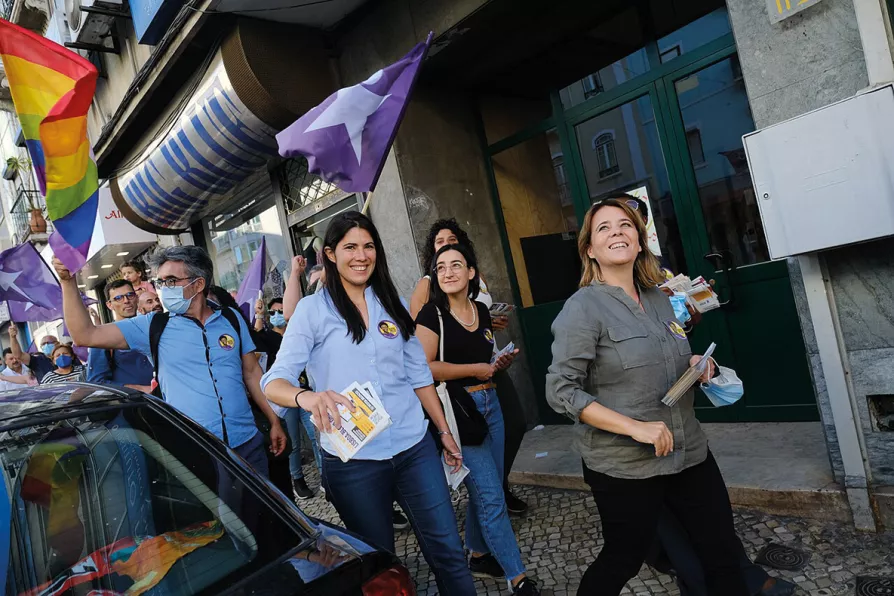This weekend, the NEU holds a special conference to debate changing its approach to organising teaching assistants, which a 2017 TUC agreement forbids. General secretary DANIEL KEBEDE outlines the choices before delegates

 Catarina Martins and Mariana Mortagua during a demonstration in the campaign for the 2021 local elections
Catarina Martins and Mariana Mortagua during a demonstration in the campaign for the 2021 local elections
In Britain we may have election fever but Europe is going to the polls too — with the far right predicted to do well across the continent in elections to the European Parliament from June 6-9.
With our sister papers Junge Welt of Germany and Arbejderen of Denmark, we compiled a series of articles looking at the nature of the far-right threat across different European countries, of which this is the fifth. We would like to thank Junge Welt for organising the series and translation.
Carmela Negrete: After eight years of a left-wing coalition in power, Luis Montenegro and his cabinet took office as Portugalʼs new centre-right government on April 2. However, Montenegroʼs camp fell well short of the required majority of 116 seats. Why were there early elections in the first place?

Looking for moral co-ordinates after a tough year for rational political thinking and shared human morality

Looking for moral co-ordinates after a tough year for rational political thinking and shared human morality

A unique daily voice for peace and socialism











